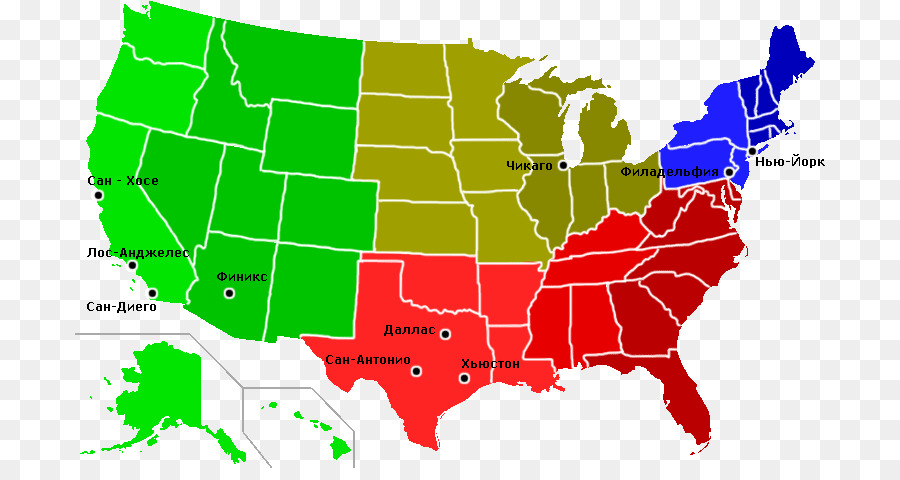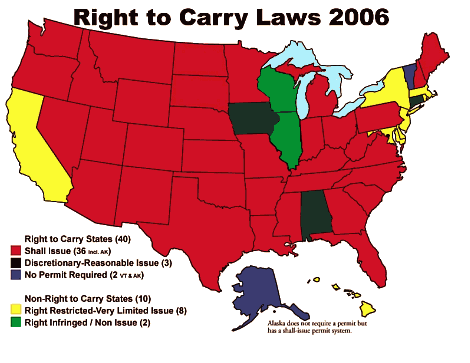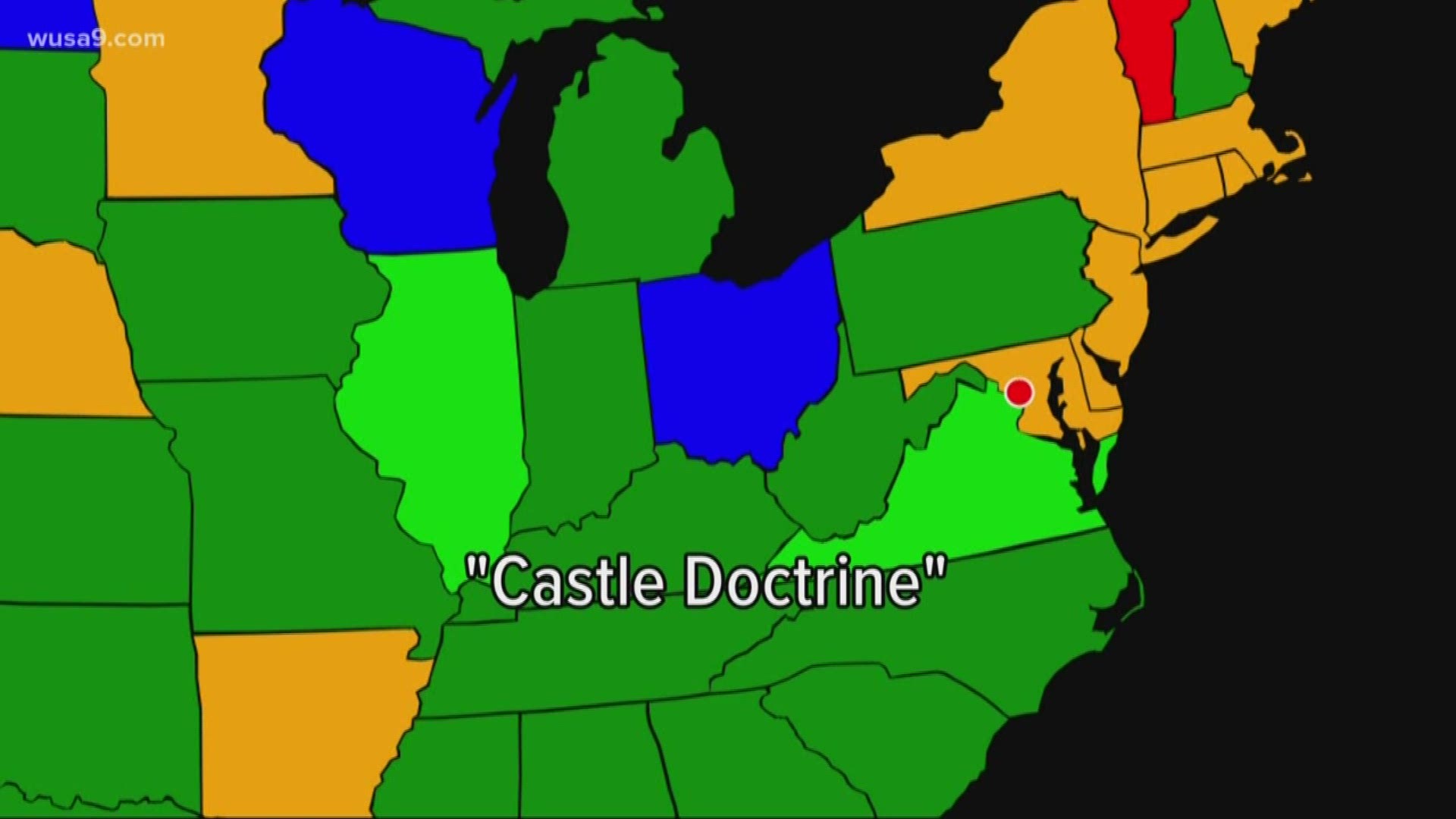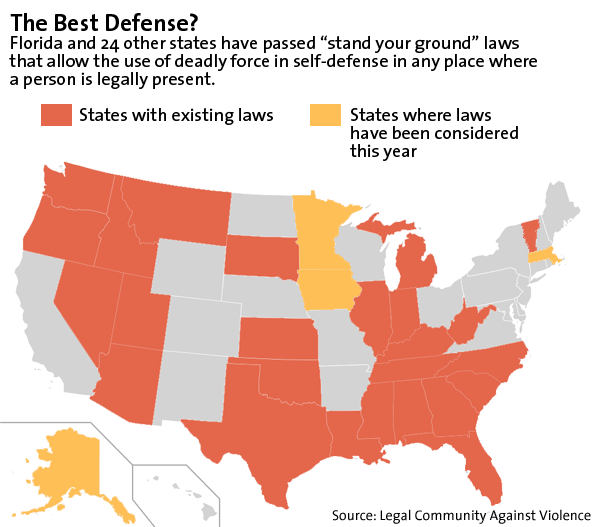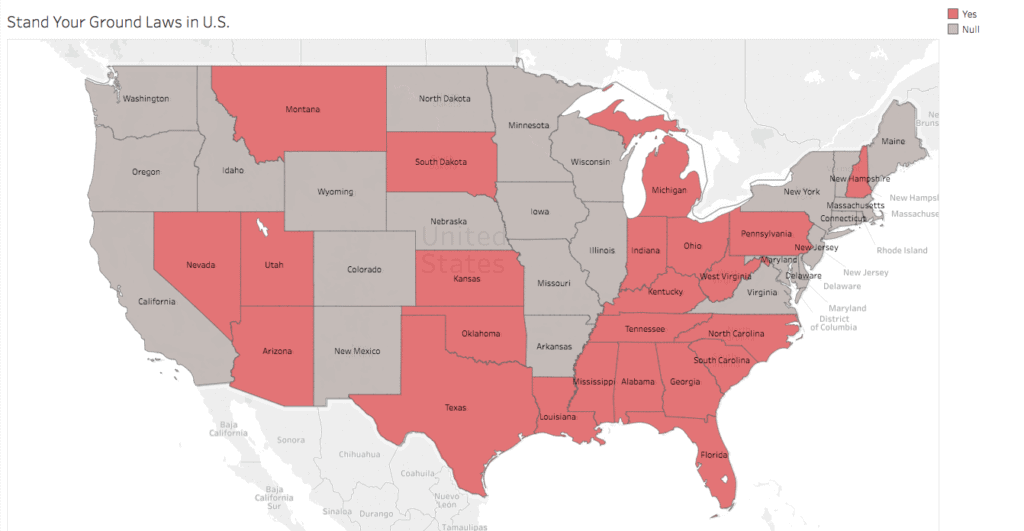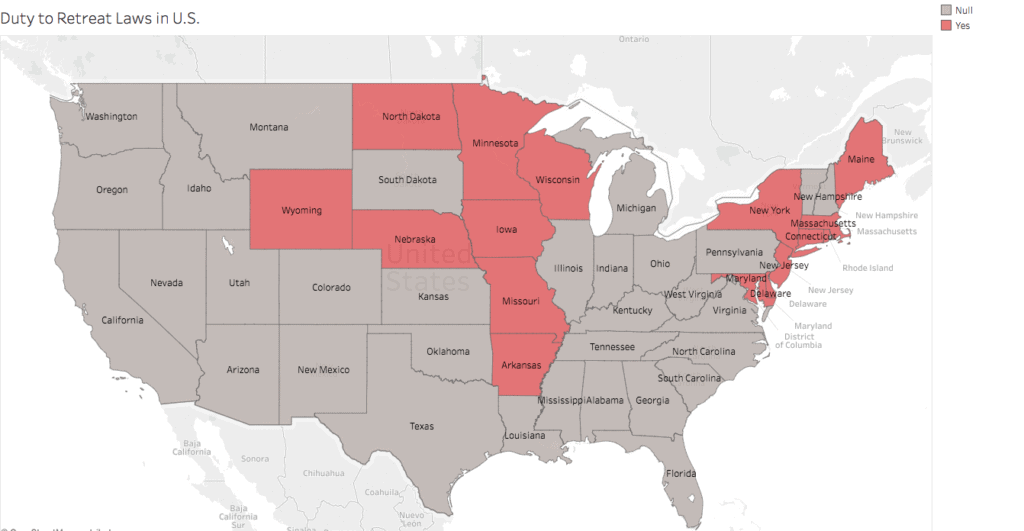Castle Doctrine States Map
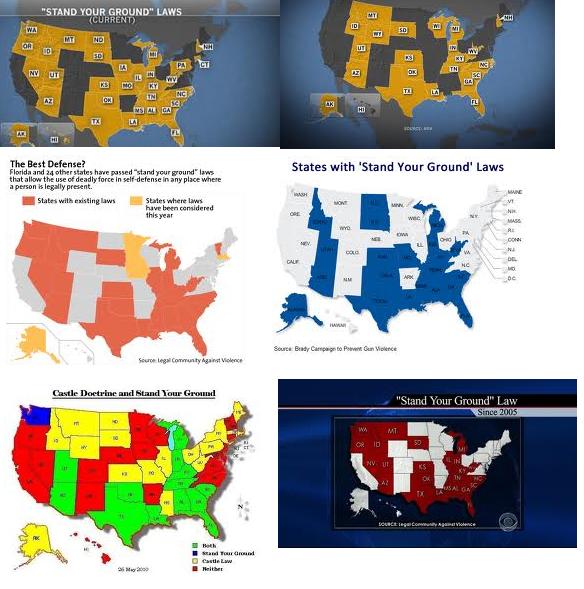
Although some states use a blend of doctrines self defense laws generally fall into the following three categories.
Castle doctrine states map. States have castle doctrine laws. No duty to retreat from the situation before resorting to deadly force. A castle doctrine also known as a castle law or a defense of habitation law is a legal doctrine that designates a person s abode or any legally occupied place for example a vehicle or home as a place in which that person has protections and immunities permitting one in certain circumstances to use force up to and including deadly force to defend oneself against an intruder free from legal prosecution for the consequences of the force used. The concept is that an individual has a right to be safe and secure within his or her own home or castle and should not have to retreat from his or her home in order to be safe.
Other states with strong castle doctrine and stand your ground laws include. Other changes include expansion of missouri s castle doctrine that will now allow for lawful guests to defend the property as though it were their own and other language that all but removes the legal need to retreat before using deadly force. One which presumes the bad guy is entering the castle to do bad things. Require you to flee from an.
States that have legislatively adopted castle doctrine are. Castle doctrine is similar to stand your ground but is typically limited to real property including a person s home property and in some states cars or workplaces. A castle doctrine is a self defense law that states that a person s home sometimes also a place of work or vehicle is a place that grants one protections and immunities from prosecution in certain circumstance to use force or deadly force to defend oneself against an intruder. The term is most commonly used in the.
Expansion of the castle doctrine. The united states has two additional. Types of self defense laws. The communist prefectures of vermont and the swarming hive of viciousness and slander known as washington d c.
No duty to retreat before using deadly force if you are in your home or yard some states include a place of work and occupied vehicles duty to retreat. Section 776 013 4 states that a person who unlawfully and by force enters or attempts to enter a person s dwelling residence or occupied vehicle is presumed to be doing so with the intent to commit an unlawful act involving force or violence. Castle doctrine lays down that there is no duty to retreat from an intruder in one s home. With that said as such states with justifiable homicide provisions in pertaining to one s domicile do not in themselves authorize indiscriminate violence therein the mere fact that one is trespassing is no defense per se to justifying homicide.
Not limited to your home place of work etc. The castle doctrine is a common law principle stating that an individual. You will have an obligation to retreat from a public space legally in these places but not from inside your home or occupied dwelling. One of the confusing things about the legal landscape of gun laws across the country is the diversity of laws and statutes between states.
There is no duty to retreat from the situation in one s home or workplace or vehicle if applicable before using force but there may be a duty to retreat in a public place. Alabama arizona georgia indiana kentucky louisiana montana nevada oklahoma south carolina tennessee utah and washington. Depending on the state an individual may have the right to protect himself or herself other people and his or her property by force.





